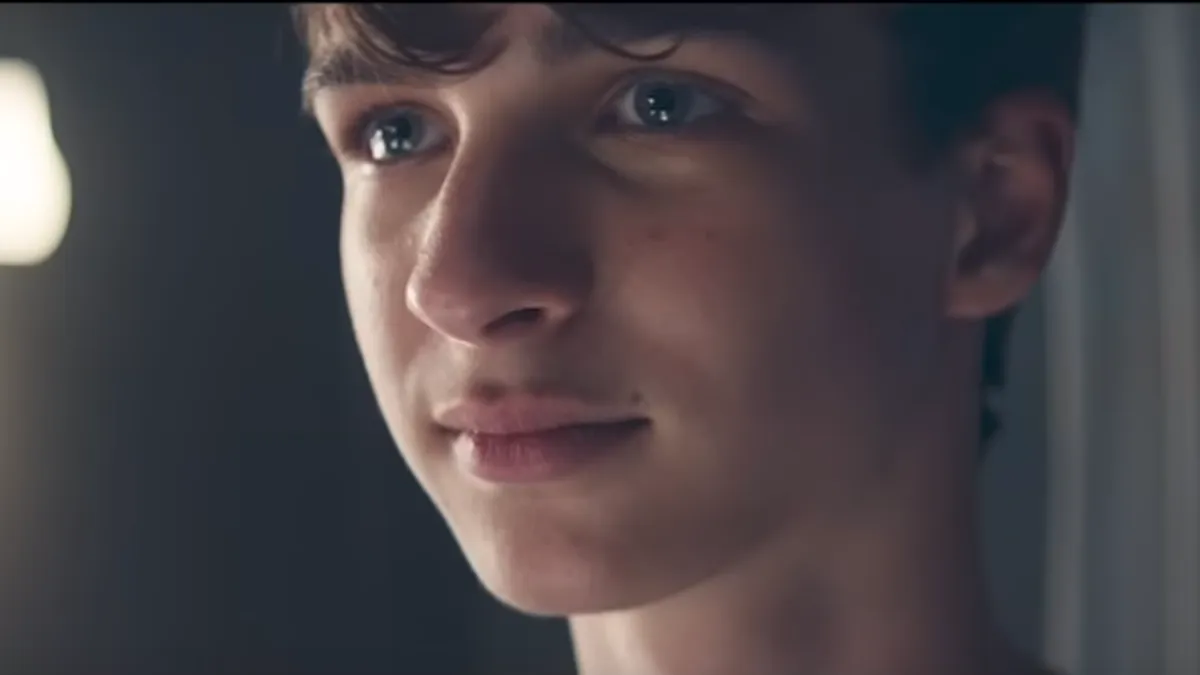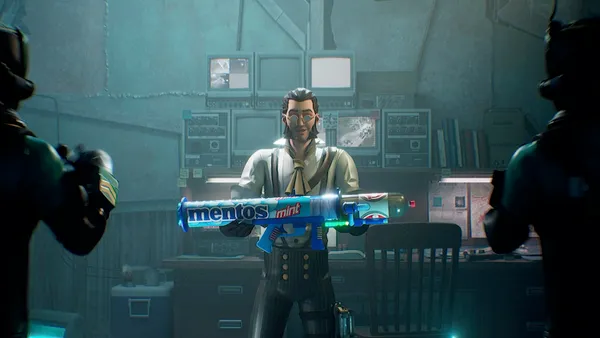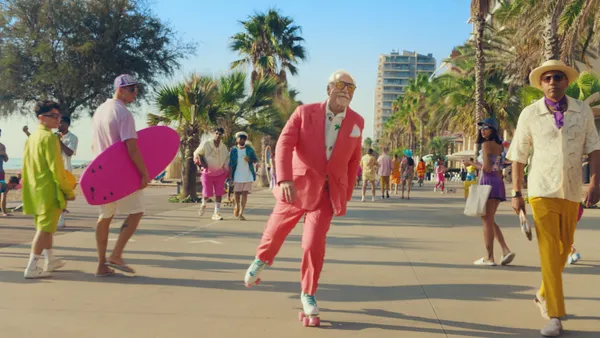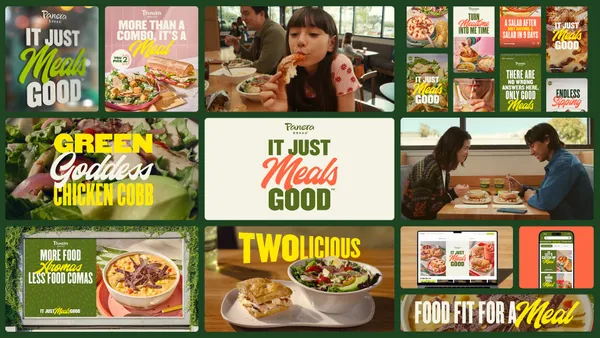Dive Brief:
- Procter & Gamble's Gillette brand has racked up more than 1.5 million mentions across blogs, forums, news sites and social media since debuting its "We Believe" ad that addresses toxic masculinity and makes direct reference to the #MeToo movement, according to an analysis by Talkwalker shared with Marketing Dive. The men's razor maker garnered 1.1 million of those mentions within the first 24 hours of the ad's Jan. 14 launch, a 214.9% increase in mentions for the brand compared to the previous 24-hour period. The hashtag attached to the campaign, #TheBestMenCanBe, was also used more than 187,400 times.
- In a separate Toluna Insights survey of 506 respondents emailed to Marketing Dive, 79.6% said they liked the ad and 51.4% believed it had the ability to bring change to the industry. While 76.9% felt hopeful about the future after viewing the ad, only about 34% said it made them want to purchase Gillette products. Nearly 60% of respondent said they believed that they would remember the ad in three or four months.
- Gillette's campaign additionally over-indexed in targeting across social platforms for the 19-24 age demo at 34% compared to 11% for the brand's general targeting aimed at the age group, per data from BrandTotal provided to Marketing Dive. BrandTotal revealed that targeted audiences for the ad were 51% female and 49% male. The firm found that 63% of consumer sentiment about the ad on social media was negative, 29% was neutral and just 8% was positive.
Dive Insight:
Responses both negative and positive to Gillette's ad have been fierce, with the volume of negativity appearing to outweigh the positive, based on multiple sentiment analyses. One thing that can't be denied is that the P&G brand has commanded the online marketing conversation for several days now, which could prove the "no PR is bad PR" adage true for the legacy razor maker.
The memorability of "We Believe" uncovered by Toluna could be a key metric to track as well. Gillette might theoretically gain more net favorability over time as the initial furor over the ad dies down and the message continues to stick with consumers months after first viewing it.
There's also sheer reach to consider. The "We Believe" video has been viewed more than 16.2 million times on YouTube at press time, sitting at No. 29 on the platform's trending page, though dislikes far outweigh likes. The brand's original tweet promoting the creative additionally has more than 25.4 million views, 208,000 retweets and 504,000 likes, suggesting it's potentially saw a warmer response on the social media site.
Despite going viral, the campaign, with messaging centered around redefining masculinity and curbing bullying and toxic masculinity, has proved divisive. It has been referred to as "feminist propaganda" by some viewers, while others have threatened to boycott the brand. By targeting the campaign at Gen Z, per BrandTotal, Gillette might resonate with younger consumers who are known for being more inclusive and shunning outdated stereotypes, as opposed to older men, who might take greater offense at the messaging.
Other recent brand campaigns are potentially indicative of how Gillette's ad will be received over the long term. Walmart-owned menswear brand Bonobos rolled out a similar push last summer that sought to evolve traditional definitions of masculinity. The effort was met with intense backlash, including a deluge of negative comments and dislikes. However, the company defended the work, which racked up a good deal of viewership and won an award from YouTube at the end of 2018 for a brand campaign that rewrote the rules.
In any case, these types of efforts show marketers continue to make more concentrated efforts to meet a consumer demand for more politically and socially active brand advertising. Sixty-four percent of surveyed global consumers base decisions on which brands to purchase from or boycott based on political or social leanings, according to the 2018 Edelman Earned Brand study.














